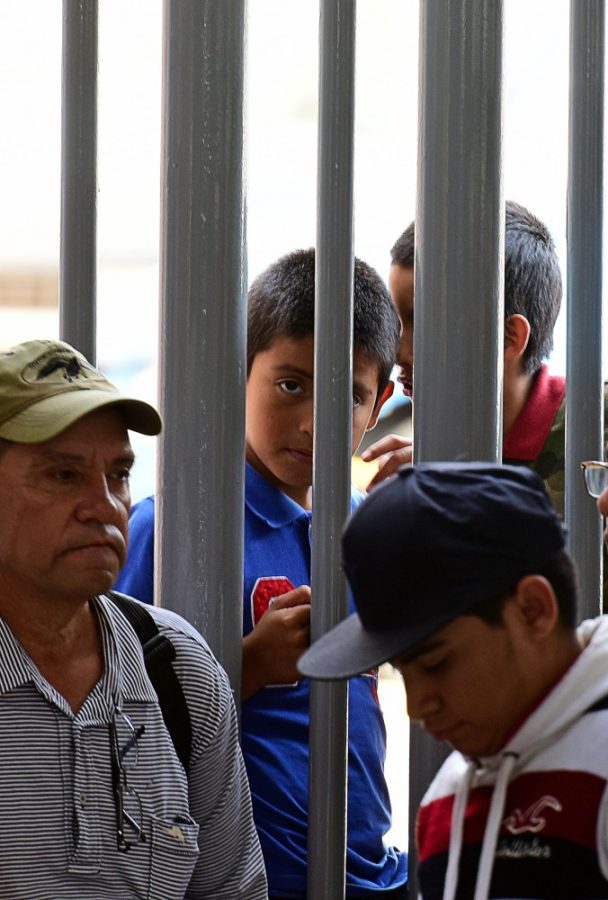Our government has just gotten out of the longest shutdown in history, with departments employing up to 800,000 people affected either through furloughs or working without the promise of pay. For 35 days, Americans did not have a government that could maintain its promises to govern, and govern effectively, and it was all over the questions of what is happening at the border and what to do in response.
Donald Trump kicked this all off when he was presented a budget bill at the end of 2018 that did not include any money to fund a border wall between the United States and Mexico, a key campaign promise President Trump made that mobilized many Republicans in the 2016 election. In response, he refused to sign the bill, and Democrats and Republicans entered into a long-winded and embarrassing staring contest that ate up the greater part of January.
While we are now back up and running, the questions have not yet been answered. We are floating dangerously close to seeing another shutdown if we don’t kick it into high gear.
RELATED: TOPIC OF THE WEEK: How to stay engaged in school even when you want to give up
So what do Americans think is happening at the border, and what do they think we should do about it? If the polls are correct, it seems that Americans are ridiculously divided on whether it is a “crisis” or just a “problem.” According to The Hill, 42 percent view illegal immigration at the border to be serious cause for concern, while 37 percent say it is just a problem and not worthy of shutting the government down or declaring a state of emergency.
What is important to note is that this topic is an exceptionally partisan one; the easiest way to decide where someone stands on this issue is to ask them who they voted for in 2016. A whopping 75 percent of Republicans list border security and illegal immigration to be the most important issue facing the United States, a number that dwarfs the 19 percent of Democrats who agree. Even further, around eight out of ten Republicans support Trump’s border wall, while nine in ten Democrats oppose it.
So if Democrats and Republicans are at each other’s throats and dead set on keeping this argument partisan, the best way to find an answer would be to look at the border states, right? They are the ones with the most vested interest in the topic, given that they are at the center of the crisis-problem and the ones feeling its effects. Which would be a good answer, except border states are in the exact same place as the rest of America: outraged disagreement.
RELATED: Newly apointed UA iSchool Director shares what the role entails
Pew Research Center published polls that established that proximity to the border influences your opinions towards a potential wall, but even though it drops the average support, it is not enough to put border state Republicans against the national party. While 76 percent of Republicans in states away from the U.S.-Mexican border support Trump’s push for a wall, only about 63 percent of Republicans in states such as California, Arizona, New Mexico and Texas do.
A drop of 13 percent is nothing to laugh at, as it is a major sign that Trump’s rhetoric about illegal immigration may be missing the mark, but evidently not enough to get Republicans to change their tone, as it still means a strong majority is on Trump’s border wall bandwagon.
The issue of illegal immigration is not a new response to a growing crisis, it is instead just another piece of a long political battle that neither side is ready to accept defeat to. Although not a crisis, over half a million people were caught by border patrol agents just last year trying to illegally immigrate to the United States, and that there is an estimated 10 million illegal immigrants in the United States without citizenship or any legal recognition.
And while the total numbers of illegal immigrants in the U.S. has fallen slowly over the latter half of the 2010s, we have to address the problems with our borders.
It can not be so porous that people can cross the border and live a life outside of the law and away from the U.S. institutions designed to help immigrants transition into being American citizens. And we can not continue punishing those who attempt to immigrate by following the rules and lawfully acquiring visas or green cards.
The truth about the border crisis can be found in the data from voters across the country; this is not a legitimate attempt to confront illegal immigration and its effects, it is another stage of political showmanship where Republicans will fund any bill that has the word “wall” in it and Democrats will refuse to read it.
Alec Scott is a Junior studying Political Science and German Studies who volunteered for the 2014 Ron Barber Congressional Campaign.









